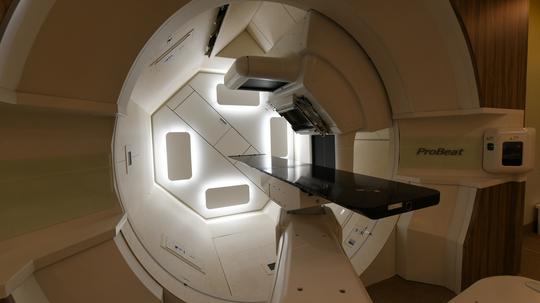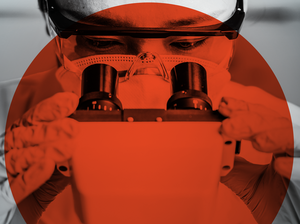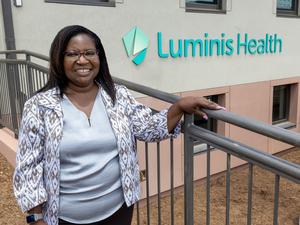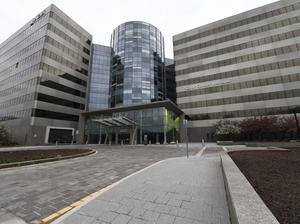
Rockville biotech Shuttle Pharmaceuticals Holdings Inc. is looking to raise up to $15 million in an initial public offering — more than five years after first signaling its intent to go public, then tabling those plans.
The company, which is developing treatments to make radiation more effective and less harmful for cancer patients, plans to trade publicly on the Nasdaq Capital Market under the symbol “SHPH,” according to an amended June 23 filing with the Securities and Exchange Commission.
Shuttle Pharma plans to offer 3 million shares of common stock, including 2.75 million sold by the company and 250,000 sold by certain stockholders, according to the prospectus, which also indicates a 45-day option for the underwriter to buy up to 450,000 additional shares of common stock.
Plans for the funding
The company has not yet stated a date for the public offering, but said it estimates an IPO price of between $4.50 and $5 per share. That means the IPO could generate between $13.5 million and $15 million, minus related expenses.
Shuttle plans to use about $10 million from the sale to support a phase 2 clinical trial in glioblastoma and sarcoma for Ropidoxuridine, its lead drug candidate, which has already completed a phase 1 study. The product, it said, makes growing cancer cells more vulnerable to the effects of radiation while diminishing side effects.
Another $5 million from the IPO proceeds would also help advance a preclinical candidate that targets cancer cells and helps the body protect healthy cells by activating the immune system. Shuttle is testing that product, called SP-2-225, in myeloma, lung and breast cancers.
Once those trials complete, the company said in its SEC filing that it may need another $22 million for phase 3 trials for Ropidoxuridine and roughly $30 million to get SP-2-225 through late-stage trials. “If such additional funds are required, we will have to secure additional funding from investors or through a joint development partner,” Shuttle wrote, adding that insufficient future funding could lead to product development delays.
The goal, Shuttle Pharma said, is to meet an “urgent clinical need.” With the exception of cancer drug cetuximab, existing therapies for making cancers more responsive to radiation are limited largely to certain chemotherapies. Those drugs are used “off-label,” it said, meaning they have secondary effects for the radiation but weren’t initially intended for that use.
Shuttle Pharma, therefore, said it aims to position itself as a leader in that niche and, eventually, expand into proton therapy, a newer radiation technology that has gained traction in recent years.
The financial journey
The decade-old company has no products to market and no corresponding revenue, common for such clinical-stage biotech companies given the expenses and years drugs take to win federal approval and emerge on the market.
It reported $405,857 in cash on hand and a net loss of $1.15 million for 2021, up from a net loss of $805,732 for 2020. The company expects proceeds from the IPO to sustain the business through 2025.
Thus far, Shuttle Pharma has advanced its pipeline largely thanks to government contracts from the National Institutes of Health, including $211,455 in 2021, as well as nearly $3 million in venture funding to date, according to data firm PitchBook. The business has most recently raised capital through convertible notes, including $525,715 this year and $500,000 in 2021, when the company also secured $73,007 during the pandemic from the Small Business Administration's Paycheck Protection Program, per its prospectus.
This isn’t the first time Shuttle Pharmaceuticals has taken steps to initiate an IPO. The company set out to raise up to $36 million in late 2016 — and, in the following months, said it would terminate the offering if it couldn’t secure its minimum $10 million target. It later withdrew that offering, according to subsequent filings with the SEC.
Shuttle Pharma, founded in 2012 by Georgetown University Medical Center faculty members, is led by Dr. Anatoly Dritschilo, co-founder and CEO; his son, Peter Dritschilo, president and chief operating officer; Mira Jung, founder and chief scientific officer for biology; and Michael Vander Hoek, chief financial officer and vice president of operations and regulatory.
Shuttle looks to go public as demand for cancer care grows as patients slowly return for screenings and treatments amid the Covid pandemic — the U.S. expects to see about 1.9 million new cancer diagnoses and 609,360 cancer deaths in 2022 alone.




